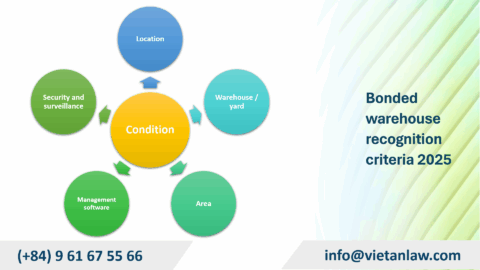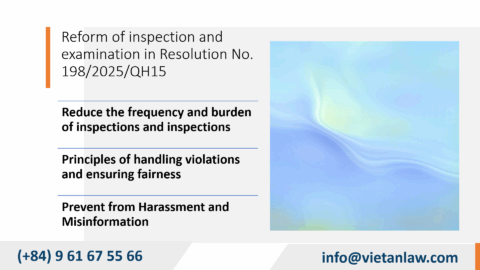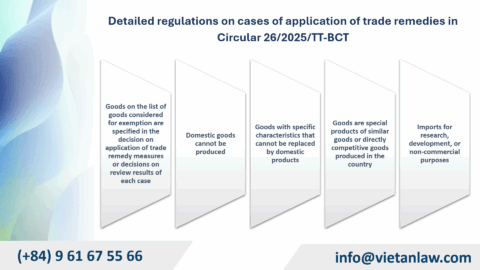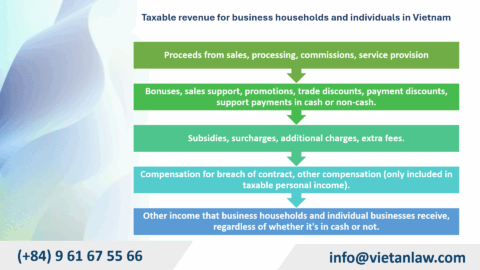On November 27, 2023, the Vietnam Housing Law 2023 was approved by the National Assembly. In general, the Housing Law 2023 still inherits most of the content from the Housing Law 2014, but there are still new and different points. However, the Housing Law 2023 takes effect from January 1, 2025, with only a few provisions taking effect first. Therefore, in 2024, the regulations of the Housing Law 2014 will still be applied simultaneously with some new regulations. In the following article, Viet An Law Firm will present some new points. of the Housing Law will be applied from next year.
The Housing Law 2014 was born before the Civil Code, Construction Law, Law on Management and Use of Public Assets, Investment Law, etc. These Laws have been amended and supplemented, leading to inconsistencies. in the provisions of regulations related to the Housing Law 2014 such as construction investment procedures, investor selection, incentives for housing project investors, etc. Because of this, it is necessary to review, adjust, and amend relevant regulations in the Housing Law 2014 to ensure consistency and synchronization of the legal system.
In addition, in the spirit of Resolution No. 18-NQ/TW of continuing to innovate and perfect institutions and policies, improving the effectiveness and efficiency of land management and use, it is necessary to closely follow Resolution No. 18-NQ/TW. Resolution 18-NQ/TW and the proposed amendments to the Land Law to ensure the unity and synchronization of the legal system in the new period are also extremely necessary.
The previous Housing Law did not stipulate the term of ownership of an apartment building, while the law on construction specifically stipulated the term of use of the project. Accordingly, works have a certain useful life. At the end of their useful life, if the work is no longer suitable for use, it must be demolished.
Reality shows that many apartment buildings have expired and their quality has seriously degraded, affecting people’s lives. This situation requires specific regulations on the duration of apartment ownership to ensure the rights and safety of people.
The previous Housing Law did not have specific regulations on the form of separate housing development for groups eligible for support policies. This leads to investors having difficulty choosing a form of housing development that suits the needs of beneficiaries of support policies.
In addition, the Housing Law also does not have regulations allowing foreign investors to participate as investors in social housing projects. This limits investment resources for social housing development.
Some regulations on housing development are not consistent with the recently amended and supplemented laws. For example, regulations on social housing development in the form of public-private cooperation are not consistent with legal regulations on investment in the form of public-private cooperation.
Regarding incentives for investors in social housing projects, regulations on incentives for investors in social housing projects are still general and do not encourage competition between investors in using energy-effective quality in housing construction investment. For example, regulations on land use fee exemption for investors of social housing projects do not differentiate between investors using energy efficiently or not.
Regulations on incentives for investors of social housing projects are also inconsistent with the laws on public investment, investment, value-added tax, and corporate income tax. For example, regulations on preferential tax rates for investors of social housing projects are not consistent with legal regulations on value-added tax and corporate income tax.
Regulations on incentives for investors of social housing projects also do not encourage businesses to invest in social housing construction. For example, regulations on social housing prices are not suitable for the majority of people’s ability to pay.
The previous housing law had some limitations on this issue. Specifically, some capital sources for housing development are not specific and clear (Article 67). The principle of capital mobilization only states basic principles, not specific (Article 68), leading to many cases of capital mobilization for commercial housing development exceeding payment capacity, inconsistent with legal regulations. Other relevant laws such as regulations on corporate bond issuance under the Enterprise Law, and regulations on mobilization through real estate investment funds under the Securities Law.
The Housing Law 2014 has important regulations to ensure the rights of residents in apartment buildings. However, there are still some shortcomings that need to be overcome, specifically as follows:
The Housing Law 2023 prohibits regulations as follows:
Previously, mini apartments were often built by individual investors, which did not fully meet the technical standards of apartment buildings. This leads to many inadequacies, such as security and order, fire protection is not guaranteed, technical infrastructure is not synchronized, or design does not ensure quality.
To overcome those shortcomings, Article 57 of the Housing Law 2023 stipulates that individuals who want to build small-sized apartments (also known as mini apartments, houses with 02 floors and 20 apartments or more) for sale or rent will have to meet the conditions to be an investor in a housing construction project. Technical standards for this type of housing will follow the general regulations of the apartment building.
Mini-apartments that meet the requirements for security and order, fire prevention, and technical infrastructure, and ensure the design is according to the design approved by the competent authority will be issued a certificate of ownership housing for each apartment.
Thus, the Housing Law 2023 has a legal basis to recognize individual ownership of each mini apartment through the issuance of certificates and permission to sell, lease-purchase, and lease according to law. This regulation will contribute to solving housing problems for low-income people, ensuring security, safety, fire prevention, and social security.
According to Article 8 of the Housing Law 2023, regulations on subjects and conditions for owning housing in Vietnam, specifically, the regulations have been amended as follows:
Similarly, in Article 9 on recognition of housing ownership, the regulations have been amended as follows:
The Housing Law 2023 adds a group of subjects eligible for social housing support policies in Clause 12, Article 76: “enterprises, cooperatives, and cooperative unions in industrial parks.”
In addition, regarding incentives for investors of social housing projects. According to Article 85 of the Housing Law 2023, investors are exempt from land use fees and land rent for the entire land area of the project. In addition, the investor does not have to carry out procedures to determine land prices, calculate land use fees, exempted land rents and does not have to carry out procedures to request exemption from land use fees and land rents.
Regarding this issue, the Housing Law 2023 has several amendments, specifically:
The Housing Law 2023 has inherited the provisions of the current Law, and at the same time has amended and supplemented to clarify several important contents, to ensure high legal effect as well as consistency and synchronization. of the legal system.
Specifically, the Law has “codified” several regulations from Decree No. 99/2015/ND-CP, Decree No. 30/2021/ND-CP of the Government, and Circular 02/2016/TT-BXD of the Ministry Construction, including:
Regarding the term issue, the Housing Law 2023 does not stipulate the ownership term as the proposed draft law but only regulates the term of use of apartment buildings based on inheriting the current Housing Law. This regulation is intended to ensure consistency with the Land Law.
According to the new regulations, the apartment’s shelf life is determined based on the results of quality inspection of the apartment building. When an apartment building expires and is in danger of collapsing and must be demolished, the value of the house no longer exists, but the value of long-term stable residential land use rights according to the provisions of the Land Law remains and the people still be compensated.
The Housing Law 2023 does not regulate the duration of apartment ownership as draft versions for the following reasons:
The fact that the Housing Law 2023 does not stipulate the duration of apartment ownership is an important new point, demonstrating the State’s concern for people’s rights while contributing to stabilizing the real estate market.
The Housing Law 2023 will take effect from January 1, 2025. This is considered the effective date to be compatible with the effectiveness of the Land Law.
Clients who need advice on regulations on Vietnam Housing Law 2024, real estate business law, civil law, and related amended decrees, please contact Viet An Law Firm for the best support.




